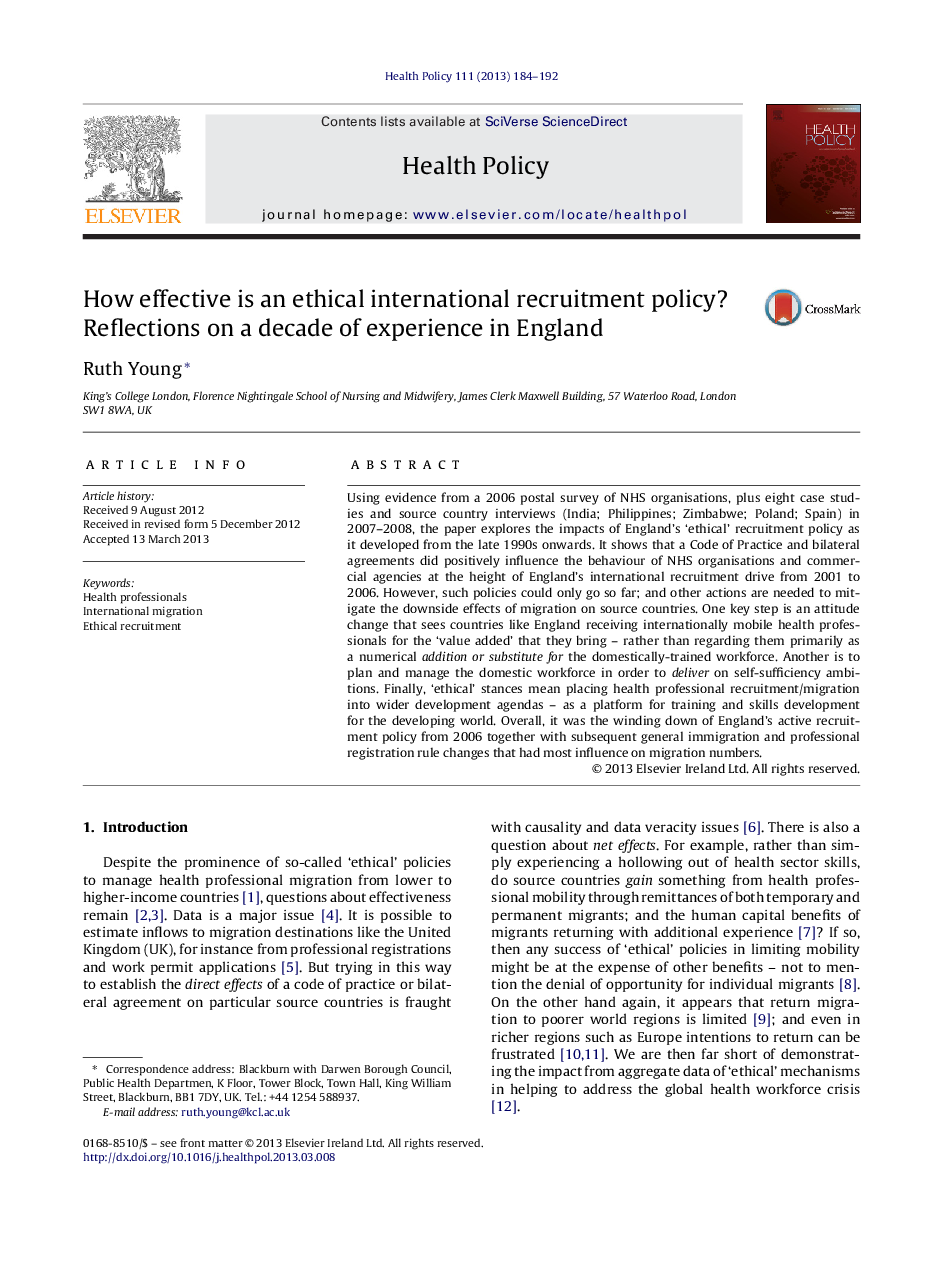| Article ID | Journal | Published Year | Pages | File Type |
|---|---|---|---|---|
| 6239758 | Health Policy | 2013 | 9 Pages |
Using evidence from a 2006 postal survey of NHS organisations, plus eight case studies and source country interviews (India; Philippines; Zimbabwe; Poland; Spain) in 2007-2008, the paper explores the impacts of England's 'ethical' recruitment policy as it developed from the late 1990s onwards. It shows that a Code of Practice and bilateral agreements did positively influence the behaviour of NHS organisations and commercial agencies at the height of England's international recruitment drive from 2001 to 2006. However, such policies could only go so far; and other actions are needed to mitigate the downside effects of migration on source countries. One key step is an attitude change that sees countries like England receiving internationally mobile health professionals for the 'value added' that they bring - rather than regarding them primarily as a numerical addition or substitute for the domestically-trained workforce. Another is to plan and manage the domestic workforce in order to deliver on self-sufficiency ambitions. Finally, 'ethical' stances mean placing health professional recruitment/migration into wider development agendas - as a platform for training and skills development for the developing world. Overall, it was the winding down of England's active recruitment policy from 2006 together with subsequent general immigration and professional registration rule changes that had most influence on migration numbers.
